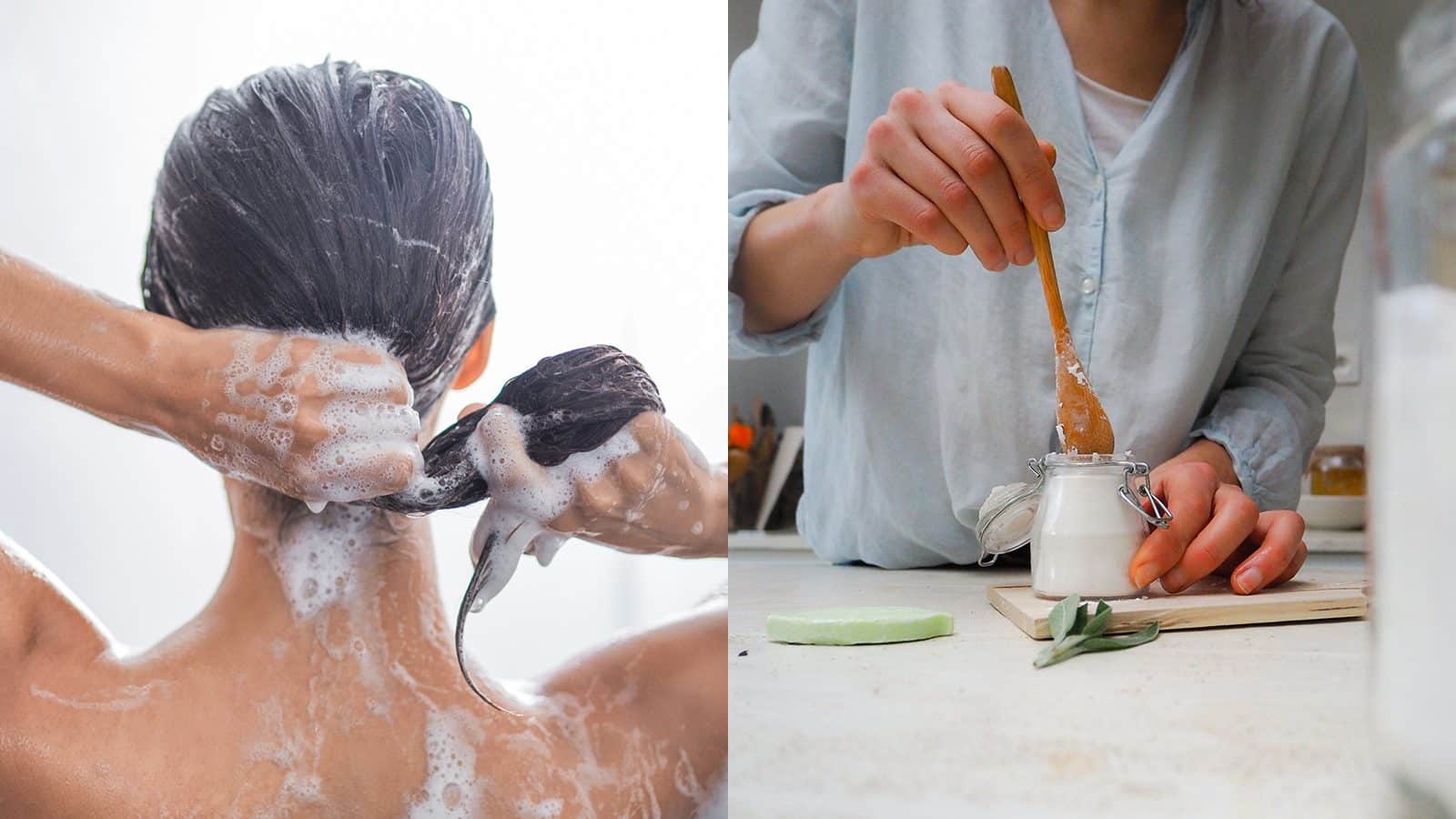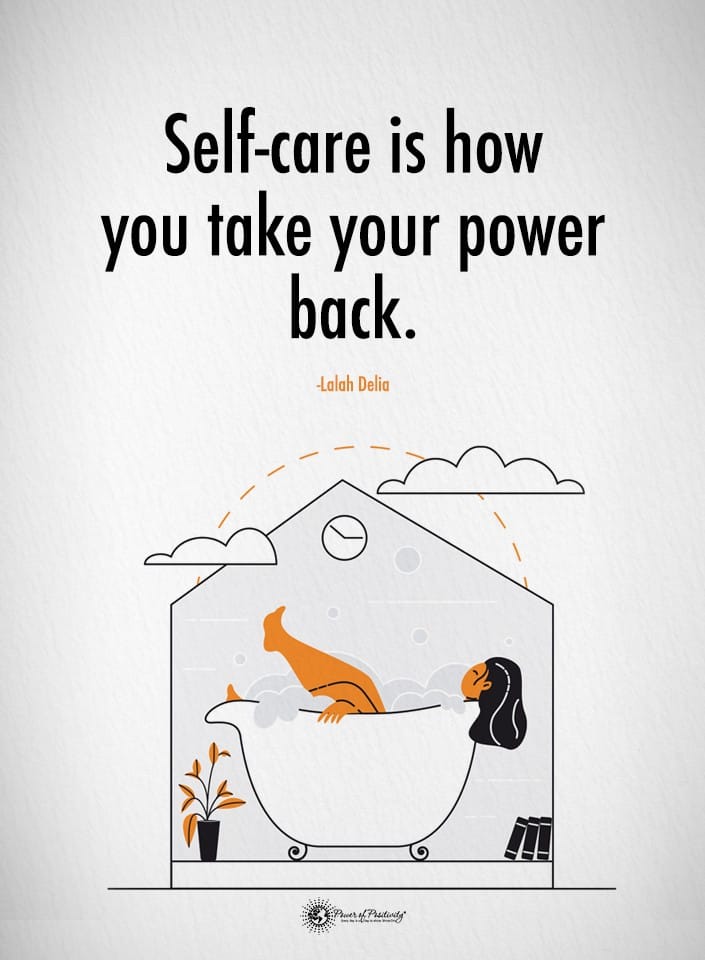Did you know most store-bought shampoo contains harmful, toxic ingredients? Added fragrances and preservatives can disrupt the endocrine system and even lead to reproductive damage. Of course, the models in shampoo commercials with gorgeous, shiny hair may convince you to buy these products. But hair care advertisements fail to address the dangers of store-bought shampoo.
Companies have one goal: making as much money as possible. Ethical businesses exist, but most want to lure in the maximum amount of customers. So the commercials you see on TV won’t tell you about the hidden ingredients that could cause health problems. So it’s up to you as the consumer to research these products beforehand to make an informed decision.
Plenty of natural, organic shampoos are on the market nowadays, but they have a high price tag. You can make chemical-free shampoo at home and make the formula last longer. Below, we’ll share a few recipes that promote healthy hair and only contain natural ingredients. But first, we’ll review a few dangerous chemicals in brand-name shampoos that you should avoid.
Chemicals and Toxins to Avoid in Popular Shampoos
Unfortunately, many name-brand shampoos contain harsh, unnatural ingredients that can wreak havoc on your health. Many have been linked to health conditions such as cancer, hormone disruptions, and allergies.
They can also clog your hair follicles and strip your hair of naturally occurring oils. These oils, called sebum, make the hair appear vibrant, healthy, and strong. Washing your hair too often with harmful ingredients can lead to dry or oily hair, depending on your hair type.
With that said, try to avoid these common ingredients in store-bought shampoos. While most of these additives don’t cause harm in small doses, people with sensitive scalps and dry hair may notice adverse effects.
Avoid these commercial shampoo ingredients for healthier hair:
- Synthetic fragrances. Unfortunately, companies use the umbrella term “fragrance” to trick even the most knowledgeable consumer. The ambiguous language ensures that shampoo brands can avoid responsibility for possible harm associated with their products. Fragrance can refer to over 2,000 different additives and chemicals, all of which have poor regulations. Studies have linked added fragrances to a wide range of health problems, including migraines, respiratory illnesses, and contact dermatitis. One study even found that some African American hair products contain 45 endocrine-disrupting chemicals, namely diethyl phthalate. Phthalates have been known to cause increased prenatal mortality and reduced birth weights. Therefore, opt for a natural, unscented brand if you see the term fragrance on a shampoo label.
- Foaming and thickening agents. Cosmetic companies add an ingredient called a surfactant to many of their products. These ingredients help your shampoo lather and serve as cleansing agents. While they remove dirt and other impurities from the hair, they also can cause serious health issues. For example, one study found that the standard foaming agent sodium lauryl sulfate (SLS) can cause eye and skin irritation.
- Parabens are a group of chemical additives used as preservatives in body care products. In the 1920s, scientists discovered that parabens could prevent mold and bacteria growth, making them useful for various cosmetics. However, they didn’t realize that these chemicals can lead to reproductive problems, disrupt hormones, and increase cancer risk. The Environmental Working Group (EWG) stated that parabens mimic the hormone estrogen in the body, which affects both male and female reproductive systems. In fact, they lower testosterone and sperm production and can cause breast cancer in women.
While many other toxins can cause adverse health effects, the ones listed above are the primary offenders. If you’d like to buy more environmentally friendly, health-conscious hair products, look for shampoos with natural ingredients. For example, seaweed, olive, coconut, and avocado oil can add moisture to your hair and give it a glossy appearance.
How to Make Chemical-Free Shampoo at Home (Three Ways)
1. Bentonite Clay & Apple Cider Vinegar Shampoo
Ingredients
- One tablespoon of bentonite clay (removes grease and toxins from the hair)
- 1 ½ tablespoon of apple cider vinegar (enhances shine and helps alleviate dandruff)
- 1 ½ tablespoon of raw honey (adds moisture and makes hair softer)
- Five spoonfuls of filtered water (prevents the clay from drying and detoxifies hair)
- 1/2 teaspoon of preferred essential oils (ex., jojoba, avocado, or argon oil)
Mix all the ingredients with a spoon until thoroughly blended in a small cup. Rub the mixture onto dry hair and let it sit for about five minutes. Then, rinse with lukewarm water and finish with your favorite hair product. To lock in moisture, consider rubbing coconut or avocado oil in your hair and leaving it on throughout the day.
2. Coconut Milk Shampoo
Ingredients
- One can full fat coconut milk
- 2 tbsp raw honey
- 1 tsp jojoba oil
- 1 tsp castor oil
- 2 tbsp apple cider vinegar
- 1 tsp preferred essential oil (lavender, rosemary, and peppermint are popular options)
Combine all ingredients in a large bowl and mix until thoroughly blended. Massage a small amount into your hair and leave it on for a few minutes before rinsing it off.
3. Castile Soap and Coconut Milk Shampoo
Ingredients
- 1/2 cup unscented liquid castile soap
- 1/3 cup full-fat coconut milk
- 2 tsp sweet almond oil (or whatever oil you prefer)
Mix all the ingredients and store them in a bottle or container in the shower. The mixture lathers nicely due to the castile soap, so you don’t need much to clean your hair.
Final Thoughts on Natural Homemade Shampoo Recipes for Lustrous Hair
If you’re tired of spending all your money on natural hair care products, consider making your own at home. The recipes above only require a few ingredients and work just as well as store-bought shampoos. Best of all, they don’t contain any of the harsh toxins you’ll find in many popular hair care products. Common ingredients, like parabens, surfactants, and fragrances, can lead to serious health issues like cancer and reproductive damage. It’s best to steer clear of these additives and buy organic products or make your own using the recipes listed. If you try any of them, let us know how they turn out!

















 Community
Community

